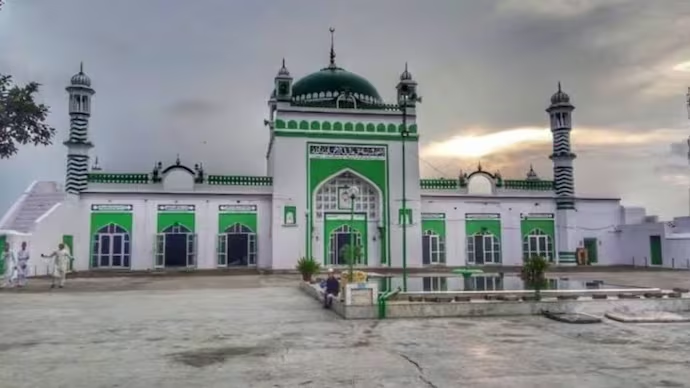13
Sambhal Masjid Case: Sambhal Jama Masjid and Harihar Temple dispute is at a sensitive place, where today’s decision of Allahabad High Court will prove to be very important for both sides. The court will decide whether the archaeological survey of the mosque will proceed legally or it will be stopped.
Sambhal masjid case: The important decision of Allahabad High Court is coming today on the ongoing dispute over Sambhal’s historic Jama Masjid. This case has become not only religious but also legal and historically sensitive. On the Civil Revision Petition filed by the Masjid Committee challenging the order of the local court, the High Court had reserved the verdict on May 13 and reserved the verdict, which will be pronounced today. This decision can become an example for such matters not only Uttar Pradesh but also across the country.
The root of the dispute, the conflict of the temple-mosque
The year -old dispute between Hindu and Muslim sides has now reached a judicial turn over the Jama Masjid located in Mohalla Kot Eastern of Sambhal district and the nearby Harihar temple. The Hindu side claims that the Jama Masjid was actually built by demolishing an ancient temple. In support of this claim, he filed a suit in the civil court and sought the right to enter there and demanded the archaeological survey of the mosque.
The matter became serious when the civil judge appointed the Advocate Commission and ordered the archaeological survey of the mosque complex. The Muslim side challenged this decision as “unconstitutional” in the High Court. The Masjid Committee says that this action not only hurts religious sentiments but also law is also wrong.
From hearing to the decision to reserve the verdict
The Allahabad High Court had a detailed hearing of this sensitive case on 13 May. A bench of Justice Rohit Ranjan Aggarwal heard the arguments of lawyers of the Mosque Committee, Advocate Harishankar Jain, representative of the Hindu side, and the lawyer of the Archaeological Survey of India (ASI). The ASI had already filed its counter affidavit, while the Masjid Committee was given an opportunity to file a revinder.

The High Court questioned the order of the district court, especially the speed with which the Advocate Commission was appointed and the survey process was carried out-that was seriously considered. Now the decision given by the court today will decide whether the survey of the mosque will continue or the order will be stopped.
Decision can go in any direction
This case is related to sensitive religious sentiments, due to which the court’s decision will be extremely effective not only from legal but also from social perspective. If the High Court accepts the petition of the Masjid Committee, then the order of the district court can be canceled, which will stop the survey process.
On the other hand, if the petition is dismissed, then it would be an indication that the court is considering the archaeological survey of the mosque to be justified, which will strengthen the Hindu side and the matter can go to a higher level. In both situations, there is a possibility that the next step moves towards the Supreme Court.














